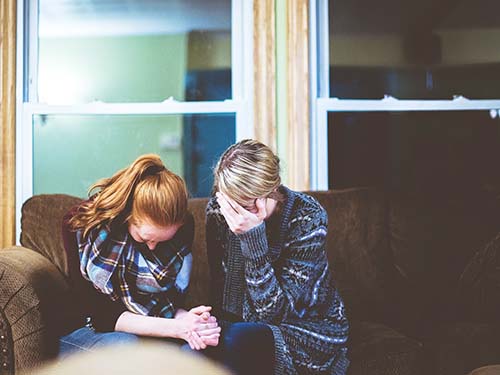(Posted 2021 October)
Though it might not be clear from mainstream media reports, domestic violence is not limited to heterosexual relationships and can affect individuals of all sexual orientations and genders.
In fact, recent research shows that within the LGBTQ+ community, intimate partner violence occurs at a rate equal to or even higher than that of members of the heterosexual community. That violence includes physical abuse, threats, intimidation, verbal harassment, and abuse involving a weapon. LGBTQ+ individuals also may experience unique forms of intimate partner violence, including “outing” (threatening to reveal a partner’s sexual orientation or gender identity) and bullying, as well as have specific barriers to seeking help due to fear of discrimination or lack of awareness about LGBTQ+-friendly resources.
In addition, the LGBTQ+ community is often met with ineffective or victim-blaming criminal justice responses. Statistics show nearly 50% of victims do not report incidents of domestic violence to law enforcement because they believe they will not be helped.
 The Department of Family Services’ Domestic and Sexual Violence Services division believes everyone, including members of the LGBTQ+ community, deserves to live a life free from violence, and shares these six important things to know about domestic violence and the LGBTQ+ community:
The Department of Family Services’ Domestic and Sexual Violence Services division believes everyone, including members of the LGBTQ+ community, deserves to live a life free from violence, and shares these six important things to know about domestic violence and the LGBTQ+ community:
1. 43.8% of lesbians and 61.1% of bisexual women have experienced physical violence, rape, or stalking by an intimate partner1 at some point in their lifetime, compared to 35% of heterosexual women.
2. 26% of gay men and 37.3% of bisexual men have experienced physical violence, rape, or stalking by an intimate partner in their lifetime, compared to 29% of heterosexual men.
3. In a study2 of male same sex relationships, only 26% of men called the police for assistance after experiencing almost lethal violence.
4. Transgender victims3 are more likely to experience intimate partner violence in public places, compared to those who do not identify as transgender.
5. African American LGBTQ+ victims are more likely to experience physical intimate partner violence.
6. LGBTQ victims receiving public assistance are more likely to experience intimate partner violence.
If you or someone you love is a victim of LGBTQ+ intimate partner abuse, call the Domestic and Sexual Violence 24-Hour Hotline 703-360-7273 for support and referrals to services. Learn about Fairfax County's Domestic and Sexual Violence Services.
1 https://www.cdc.gov/violenceprevention/pdf/cdc_nisvs_ipv_report_2013_v17_single_a.pdf
2 https://avp.org/wp-content/uploads/2017/04/ncavp_2012_ipvreport.final_.pdf
3 https://avp.org/wp-content/uploads/2017/04/2015_ncavp_lgbtqipvreport.pdf
This posting is part of the Department of Family Services' Community Corner where you’ll find timely information about upcoming events, parenting and wellness tips, programs and services, and more! Share these helpful posts with your friends and family. Don't miss out on future postings! Sign up today!

